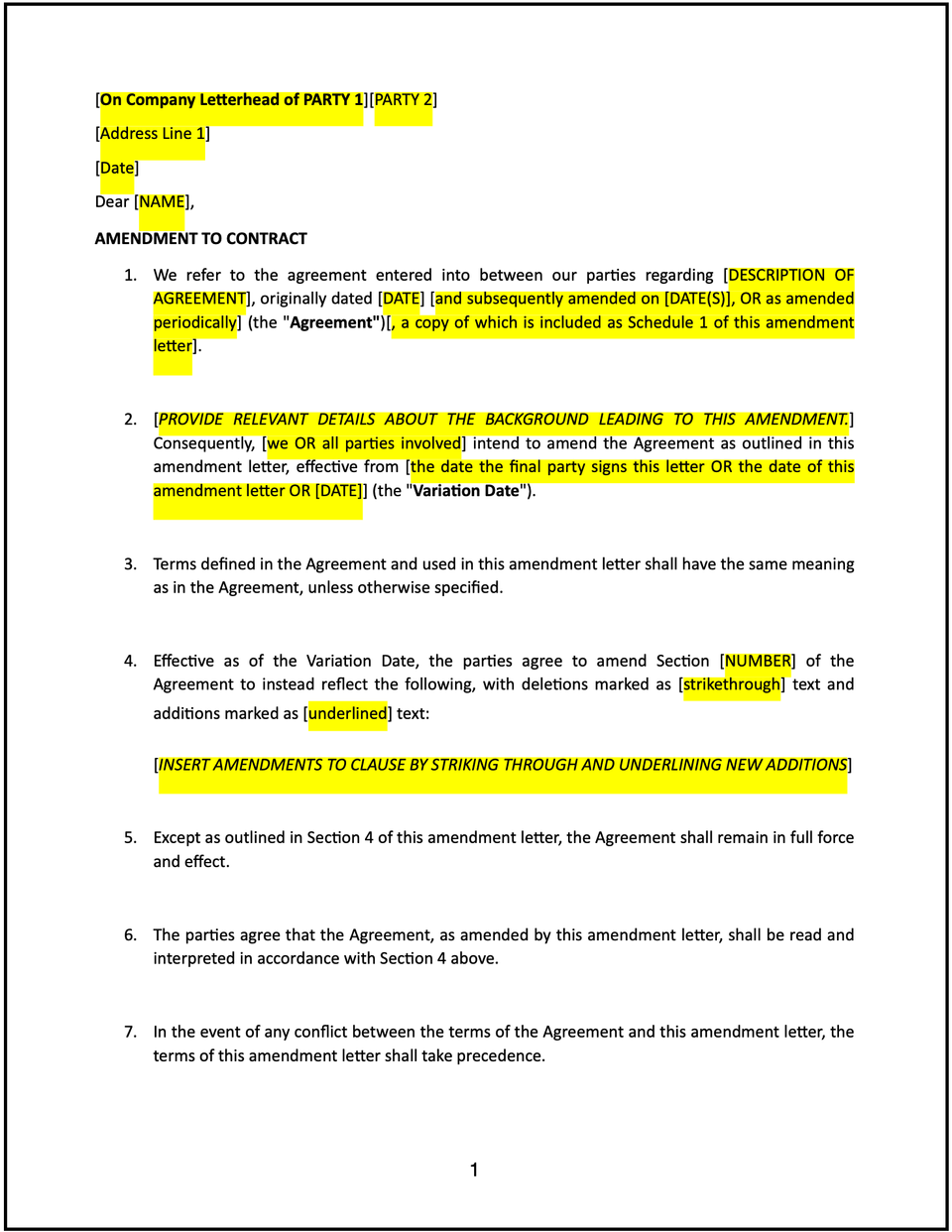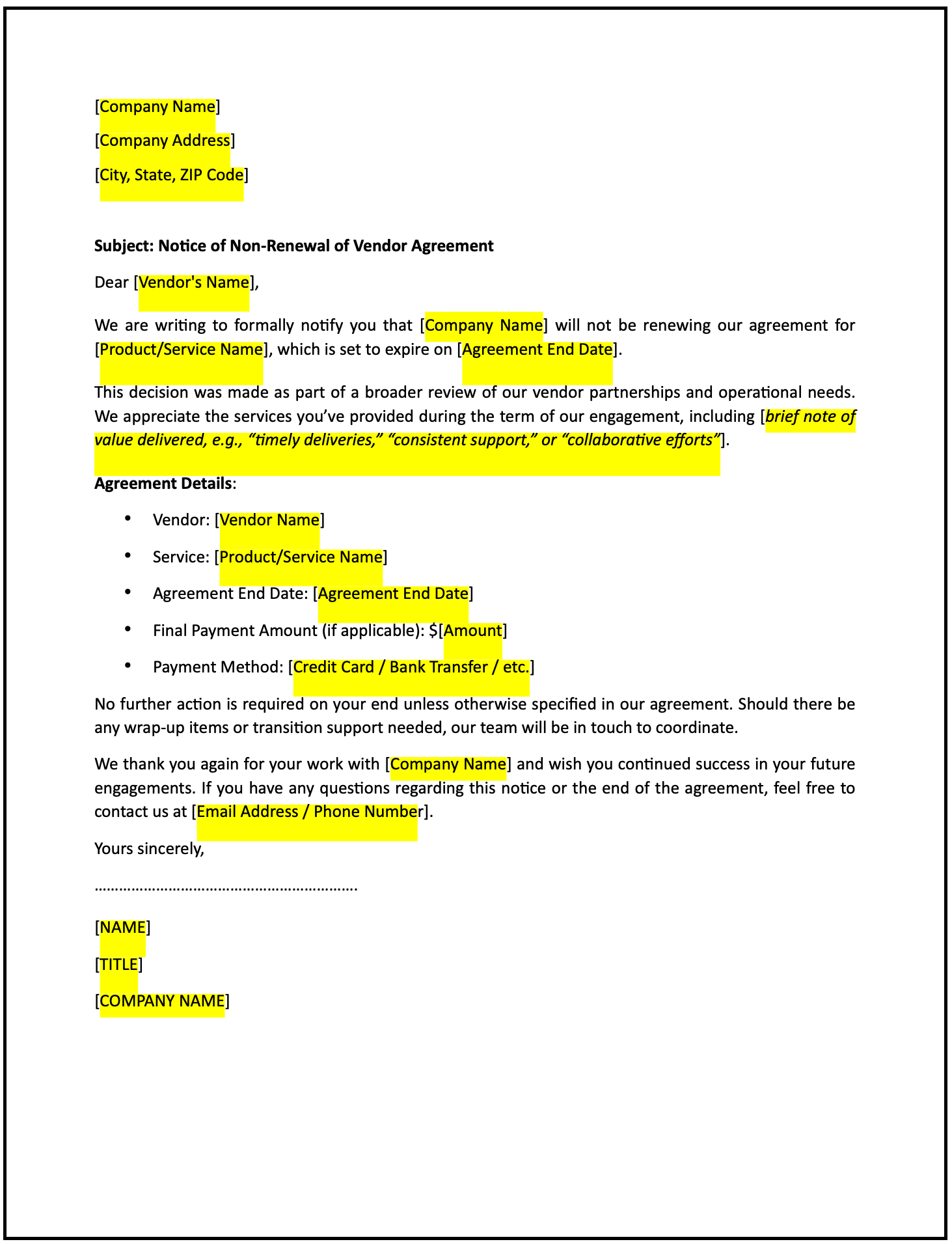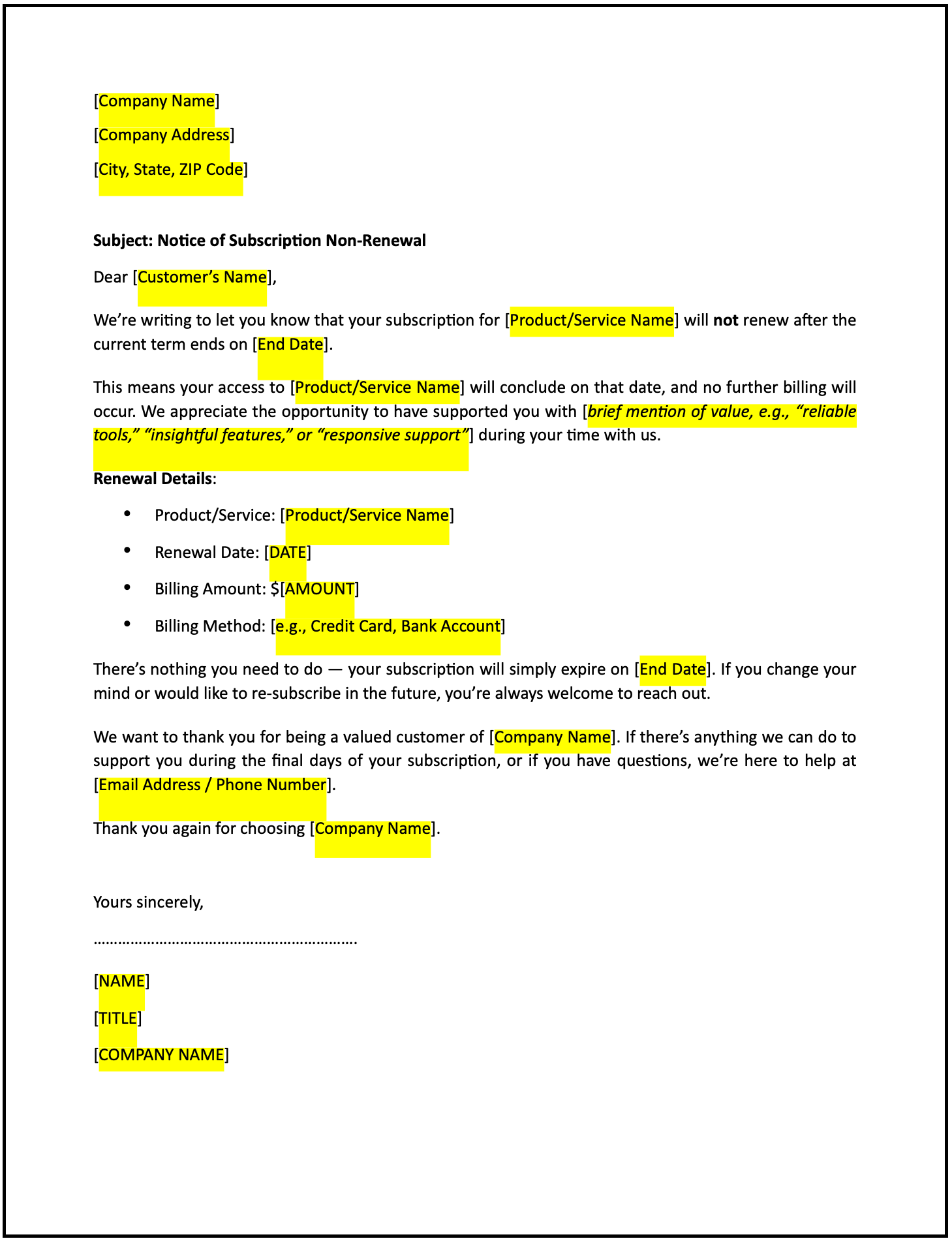Request for amending contract governing clause letter: Free template

Request for amending contract governing clause letter
Amending the governing clause in a contract can be necessary to reflect updated preferences or align the agreement with applicable laws. This letter provides a professional way to propose changes to the governing clause, explain the rationale, and invite collaboration to finalize the amendment.
How to use this request for amending contract governing clause letter
- Reference the contract: Clearly identify the contract, including its title, reference number, and the parties involved. Provide the original effective date for context.
- Specify the proposed amendment: Clearly outline the suggested changes to the governing clause, referencing the specific section or clause in question.
- Explain the rationale: Provide a concise explanation of why the amendment is necessary, focusing on legal compliance, jurisdictional changes, or mutual convenience.
- Highlight the benefits: Emphasize how the amendment will benefit both parties or improve the contract's enforceability.
- Propose next steps: Suggest a meeting, call, or other follow-up actions to discuss the amendment and finalize the changes.
- Maintain a professional tone: Ensure the letter is respectful and collaborative, emphasizing mutual understanding and alignment.
- Request acknowledgment: Ask the other party to confirm receipt of the letter and provide their feedback or agreement to the proposed amendment.
Benefits of using a request for amending contract governing clause letter
This letter template provides a structured and professional way to propose changes to a contract’s governing clause while fostering collaboration and clarity. Here’s how it helps:
- Ensure compliance: Proactively addressing the governing clause ensures the contract aligns with applicable laws or updated preferences.
- Promote transparency: Clearly communicating the proposed changes fosters trust and alignment between the parties.
- Facilitate negotiation: A structured proposal encourages constructive dialogue and expedites agreement on the amendment.
- Minimize disputes: Documenting the proposed changes reduces the risk of misunderstandings or disagreements.
- Provide a formal record: The letter serves as a written record of the proposed amendment, which is useful for reference during negotiations.
Tips for writing an effective request for amending contract governing clause letter
- Be specific: Clearly reference the contract and the governing clause to be amended, including relevant clause numbers or titles.
- Provide context: Explain the reasons for the proposed amendment and its relevance to the agreement.
- Use professional language: Maintain a respectful and solution-oriented tone to foster collaboration.
- Suggest alternatives: If applicable, propose multiple options for the amendment to facilitate negotiation.
- Keep it concise: Focus on the key elements of the proposal and avoid unnecessary details or commentary.
Frequently asked questions (FAQs)
Q: What details should I include in this letter?
A: Include the contract reference, the specific governing clause to be amended, the rationale for the change, and any proposed new wording.
Q: Should I include legal justification for the amendment?
A: Yes, providing a brief explanation of legal or jurisdictional reasons strengthens the proposal and ensures clarity.
Q: Who typically receives this letter?
A: Send the letter to the legal representatives or decision-makers of the other party involved in the contract.
Q: How formal should this letter be?
A: The tone should be professional and collaborative, reflecting the importance of the governing clause.
Q: When should this letter be sent?
A: Send the letter promptly after identifying the need for the amendment to ensure timely discussion and resolution.
Q: Can this letter propose multiple jurisdiction options?
A: Yes, offering alternative jurisdictions demonstrates flexibility and can facilitate agreement.
Q: Is acknowledgment from the other party required?
A: Yes, acknowledgment ensures alignment and confirms that the proposal has been received and understood.
This article contains general legal information and does not contain legal advice. Cobrief is not a law firm or a substitute for an attorney or law firm. The law is complex and changes often. For legal advice, please ask a lawyer.


